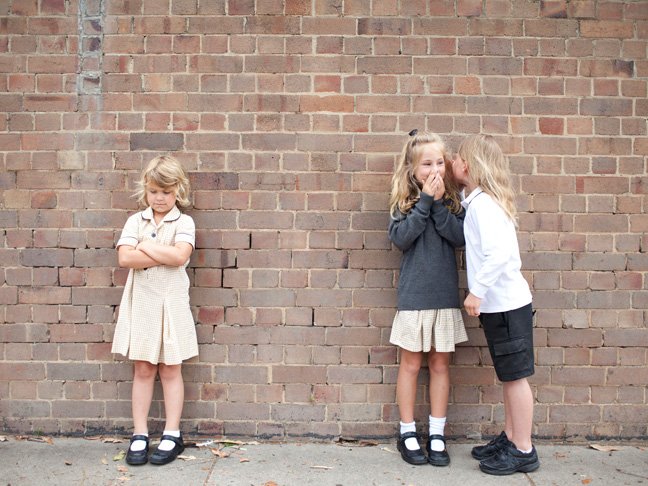I remember dealing with the mean girls in school more than once. My first experience was in second grade when a bunch of sixth grade girls were hanging out in the bathroom and as soon I walked in, they started calling me names. I was the new girl in a tiny town, I knew no one, and I had no idea why they didn’t like me.
Since then, I’ve seen mean behavior in girls and women of all ages, and most of the time I don’t think they’re really mean; they’re just trying the behavior out. In fact, some of us have been there. We’ve said really nasty things, or we’ve acted in ways that make us cringe now. Of course, we all know of adults who never dropped this behavior; mean girls can grow into mean women.
Mean girls follow us down every path we take; their bad behavior isn’t going away anytime soon, and when we have kids of our own, it’s a hard thing to swallow. How do we coach them through this, especially when they are going through tumultuous times with peers while they are away from us?
There is usually a backstory to mean girl behavior, but it’s hard to consider that when your child is the victim of it. Maybe the offender is being treated badly by some of her good friends; kids have been known to find pleasure in befriending you, only to put you down, unfriend you, and repeat the process over and over. It seems some of them have taken it up as a sport. Or maybe it’s complete strangers who are taking a toll on the mean girl’s self-esteem.
Regardless of why our kids are subjected to mean girl behavior, I think it’s important to let them know that we’re here for them. I’ve let my kids know that I am here to listen. I want them to know I remember what it’s like. I don’t want to brush it under the rug and dismiss behavior like this and make them feel like they don’t have any real problems.
The fact is, mean girl behavior is a big deal, especially during childhood. Friends, the things that happen during school, extracurricular activities, and parties are a huge part of my children’s lives. In fact, I know many women who still talk about the way mean girls made them feel. It is hurtful, it does stick with us, even if we do shrug it off, or it has been over 20 years since a bunch of kids got up from the lunch table as soon as we sat there and left us sitting alone for all of the cafeteria to see.
It is wishful thinking to believe my kids will never be exposed to this behavior, or dabble in it themselves. I want to teach them to rise above it because it seems to be here to stay.
I want my kids to stick up for themselves. I’m not talking about being aggressive or mean; I don’t want my kids to mimic hurtful behavior. I understand it’s hard not to want revenge and make people who have hurt us feel the same hurt. I know in the long run we all feel better if we don’t lash out and act in a way that doesn’t suit us. Instead, I want my kids to speak up when something is not okay and show that they have boundaries. Sometimes that means they have to walk away or make a hard decision and end a friendship that doesn’t feel good. I also want them to know that it doesn’t make you weak if you don’t respond or engage.
And sticking up for other kids who are victims of mean girl behavior is just as important. My best friend recently told me a story about a girl who came to her rescue when a bunch of the cool girls decided it was her turn to be ostracized and mocked at a party when she was in sixth grade. There was an older, popular girl who took her aside and said, “Screw them, you are so much better than that. Let’s hang out tonight.” My friend recalls that moment boosting her self-confidence. She was able to rise above some of the meanest behavior after that — and even help other girls going through what she experienced. Sometimes all it takes is for one of our peers to help us out. It can be contagious. It’s not enough to teach our kids not to bully or be mean to others, we need to show them to stick up for others. We need to set an example, and shut down the idea that it is fun and cool to put others down. This gang-type mentality is dangerous, and unfortunately, all too common.
Our children aren’t always going to get along. And there is such a thing as healthy arguing over situations. I think so many of the time our kids are feeling lost and need others to join in on their meanness in order to feel validated and justified; otherwise, I am willing to bet they wouldn’t do it half as much.
So while it looks like this behavior is here to stay — some women I know say their worst experiences have been when they were mothers — we can teach our kids to have confidence. We can teach them to rise above difficult situations. We can help them learn to deal with bad behavior in a healthy way, ask for help if they need it, and lend a hand when they see another child having a hard time.
We need to have this talk with our children, not just once, but all the time. A child’s self-esteem is too important. Like it or not, all of our kids are somehow going to be affected by mean girl behavior at some point.
Photo: Getty








